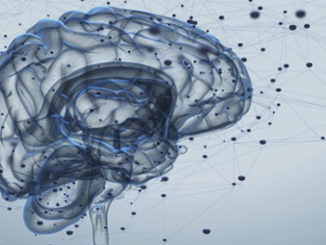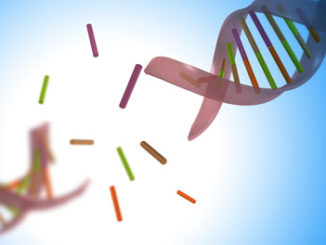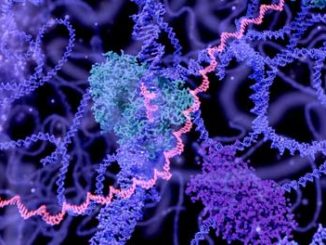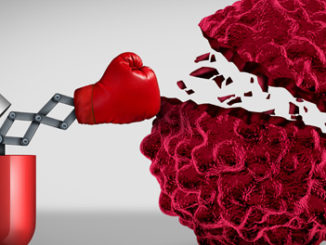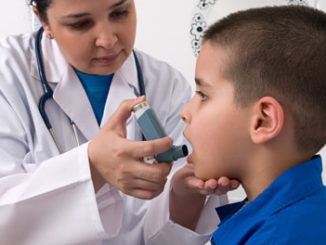Articles that explore the ways in which epigenetic drugs may be used to stave off cancer and other diseases. Additional articles cover topics related to drug abuse, rehab, and addiction.
Despite the countless destructive health consequences and carcinogenic properties of cigarette smoke, the CDC estimates that 40 million adults in the United States currently smoke cigarettes. The toxic chemicals are capable of causing damage to nearly every organ in the body and can lead to the development of cardiovascular disease, respiratory disease, and cancer. Researchers continue to add to the large body of evidence of the detrimental effects nicotine exposure has on cellular processes and our health. Now, they’re beginning [more…]
In a new study, researchers have found that epigenetic effects can result from taking a popular antidepressant drug, which may help indicate whether or not a patient will respond positively to the drug. The research team, led by scientists in Germany from the Max Planck Institute of Psychiatry, found a molecular pathway that changes global DNA methylation while in the presence of paroxetine, also referred to as Paxil, a selective serotonin reuptake inhibitor (SSRI). SSRIs are the most commonly prescribed [more…]
New research has found that a histone deacetylase (HDAC) inhibitor drug used to treat cancer could also help sharpen memory and improve one’s ability to learn a new language. It could even help rewire the brain and sustain neurons which could be of benefit to those suffering from Alzheimer’s and dementia. Researchers from Rutgers published a study in the Journal of Neuroscience that investigated a cancer treatment drug, RGFP966, and found that it had other positive effects that were previously [more…]
UK scientists from The University of Birmingham have discovered how certain cancer cells can adapt and render cancer drugs ineffective. These drugs, known as histone deacetylase (HDAC) inhibitors, are designed to disrupt cancer cells’ genetic controls. Their research, published in Epigenetics and Chromatin, may help create new therapies focused on preventing tumors from overcoming HDAC inhibitors (HDACi). Genes can be switched on or off via molecular tags that attach to DNA and transfer signals to tell the cell how to [more…]
DNA damage occurs frequently to cells as a result of normal cellular processes, but one of the worst genetic malfunctions that can occur is DNA double-strand breaks, or DSBs. This can lead to cancer and increased resistance to cancer therapy. New research from scientists at The University of Texas MD Anderson Cancer Center reported their findings regarding histone modifications, the cause of DNA double-strand breaks, and possible ways they can be fixed. Their research was published in Nature Cell Biology. [more…]
A person’s genetic code can contribute to their risk for developing non-small cell lung cancer (NSCLC), which accounts for about 85% of lung cancers. Epigenetics, the study of chemical tags that impact gene expression without altering the genetic sequence, is shown to also profoundly influence the development of cancer. In a study by Asan Medical Center researchers from The University of Ulsan College of Medicine in Korea, chromatin immunoprecipitation (ChIP)-on-chip assays and other techniques were used to investigate the epigenetic [more…]
Not only is cocaine a highly addictive drug, but it also comes with an incredibly high chance of relapse even after someone has abstained and experienced symptoms of withdrawal. A new study is illuminating the epigenetic changes made to DNA during the withdrawal stage for those trying to rid themselves of the drug and offers new hope for more effective epigenetic-based treatments for drug addiction. According to researchers from McGill University and Bar Ilan University, the genes found in your [more…]
New research published in JAMA Oncology shows that DNA damage that occurs as a result of smoking may be found in cheek swabs. In light of this research, smoking is thought to adjust the epigenetic profile of cheek cells and the resulting epigenetic landscape may even be used as an early warning sign of other cancers typically unrelated to smoking, such as gynecological and breast cancers. Professor Martin Widschwendter, Head of the Department of Women’s Cancer at the UCL Institute [more…]
Scientists from St. Jude Children’s Research Hospital conducted a study that illuminates a mechanism by which leukemia cells resist steroids, a key factor detrimental to the success of chemotherapy. This discovery could help create more effective cancer drugs and improve the treatment of many autoimmune related diseases. The researchers looked at a certain type of steroid hormones involved in the immune system, known as glucocorticoids. These hormones are crucial components to the chemotherapy drug cocktail that has helped increase long-term [more…]
A new epigenetic study has identified 30 genes connected to allergies and asthma that make people more susceptible to these conditions. Using the newly discovered gene targets from this study, scientists could potentially create drugs to combat allergic diseases and reduce allergic responses. About 6.8 million children and 18.7 million adults in the U.S. suffer from asthma. According to the Asthma and Allergy Foundation of America, 60 million people suffer from both asthma and allergies, affecting 1 out of every [more…]




